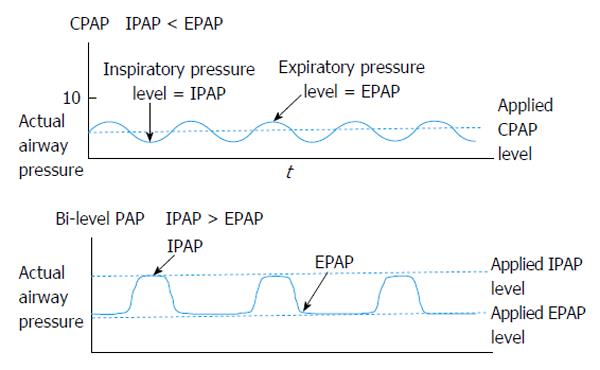Mechanism of action of continuous positive airway pressure therapy iv
Table of Contents
Table of Contents
Continuous positive airway pressure (CPAP) therapy is a common treatment option for people with sleep apnea. However, like any medical treatment, CPAP therapy comes with its own set of challenges. Clinical alerts are an essential tool in managing these challenges, ensuring the safety and efficiency of the therapy. In this article, we will discuss the benefits and target of CPAP therapy and clinical alerts, the pain points related to the therapy, and the advancements made in its management.
Many people suffering from sleep apnea are unaware of their condition, which can result in daytime fatigue, snoring, and other symptoms affecting their quality of life. Fortunately, CPAP therapy has proven to be an effective treatment for sleep apnea, promoting better sleep and reducing the risk of other associated conditions.
For people with sleep apnea, CPAP therapy offers an opportunity to breathe more easily and get better sleep. Clinical alerts are a crucial element in ensuring the safety and success of the treatment. These alerts are designed to notify healthcare providers and patients of any issues and ensure that the therapy is running smoothly.
In summary, CPAP therapy and clinical alerts are an essential tool in managing sleep apnea. By utilizing these tools, we can ensure that people living with sleep apnea can get the treatment they need to manage their condition effectively.
Target of CPAP therapy and clinical alerts:
CPAP therapy targets people suffering from sleep apnea, a condition that causes interruptions in breathing during sleep. Clinical alerts target healthcare providers and patients to ensure proper treatment and safety.
Personally, I have witnessed the benefits of CPAP therapy in my uncle, who suffered from sleep apnea and struggled with daytime fatigue and snoring. After starting CPAP therapy and utilizing clinical alerts, he has seen a significant improvement in his sleep quality and overall health.
Pain points related to CPAP therapy and clinical alerts:
While CPAP therapy can be effective in treating sleep apnea, it also comes with challenges. Some people find the mask uncomfortable or have difficulty adjusting to the treatment, leading to non-compliance. Clinical alerts can also be daunting for some, as they may not understand what the alerts entail.
However, advancements in CPAP therapy have helped ease these pain points. Newer machines have more comfortable masks, and healthcare providers can educate patients on the benefits of clinical alerts and how to manage them.
Advancements in CPAP therapy and clinical alert management:
Recent advancements in CPAP therapy include heated tubing and automatic pressure adjustment, promoting better comfort and compliance for patients. Additionally, healthcare providers can now easily monitor and manage clinical alerts through technology, allowing for timely interventions and adjustments as needed.
The benefits of CPAP therapy and clinical alerts:
The benefits of CPAP therapy and clinical alerts are significant, promoting better sleep quality and reducing the risk of associated conditions. By utilizing these tools, people with sleep apnea can improve their overall health and quality of life.
Question and Answer:
Q: Can CPAP therapy be used for other conditions besides sleep apnea?
A: While CPAP therapy is primarily used for sleep apnea, it can also be used to treat other respiratory conditions such as chronic obstructive pulmonary disease (COPD).
Q: Will CPAP therapy cure my sleep apnea?
A: CPAP therapy is not a cure for sleep apnea but is an effective treatment for managing the symptoms and promoting better quality sleep.
Q: Can I use clinical alerts on my own?
A: No, clinical alerts are intended for healthcare providers as they provide essential information regarding the therapy’s efficacy and safety.
Q: How often do I need to clean my CPAP equipment?
A: It is recommended to clean your CPAP equipment daily to ensure proper hygiene and prevent infections.
Conclusion of CPAP therapy and clinical alerts:
CPAP therapy and clinical alerts are essential tools in managing sleep apnea, promoting better sleep quality and reducing the risk of associated conditions. Advancements in CPAP technology have eased the pain points associated with the therapy, promoting better compliance and comfort for patients. Utilizing clinical alerts ensures the safety and efficacy of the treatment, providing healthcare providers with vital information to monitor and adjust the therapy as needed. By utilizing these tools and advancements, we can improve the overall health and quality of life for people living with sleep apnea.
Gallery
Positive Airway Pressure Therapy For Heart Failure

Photo Credit by: bing.com / pressure airway positive continuous bi level therapy 1175 wjc heart failure v6 i11
Continuous Positive Airway Pressure (CPAP) Devices Market

Photo Credit by: bing.com / pressure positive airway continuous cpap devices types market machine breathing bipap different insights premium press release
Mechanism Of Action Of Continuous Positive Airway Pressure Therapy IV

Photo Credit by: bing.com / airway mechanism
Continuous Positive Airway Pressure Therapy | Nursing Information

Photo Credit by: bing.com / pressure continuous positive airway therapy
Continuous Positive Airway Pressure (CPAP) -Therapie

Photo Credit by: bing.com / cpap apnea airway nasal sleepers suffering bipap snoring therapie hable dificultades prism somsak eyeem using copd galeon fitnesslifestylehealthclub


